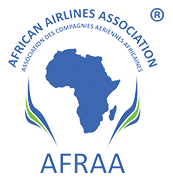Release date: 03 February 2022
The number of people infected by the Omicron Covid variant continues to increase. This has unfortunately resulted in some countries putting in place panic measures against international travel. Globally, the number of cases has reached 350 million and 10.7 million in Africa. Stringent travel advisories, insistence on full vaccination before travel, forceful vaccination at ports of arrival, repatriation of passengers not meeting entry travel requirements and quarantine of passengers at their own costs are some of the unorthodox measures being enforced by some governments. In fact, in one African country airlines are fined as much as US$3,500 per passenger for landing passengers that have not taken their second vaccination or failed to complete online health declaration forms.
As a result of these uncoordinated measures, air passenger traffic from January to December was only 42.3% compared to the same period in 2019. Capacity reached 52.7%. In January 2022, the capacity is expected to inch up by 6.3% to 59% while air passenger traffic will see a marginal increase of 0.3 from the previous month.
Domestic market maintained the biggest share for capacity deployed though actual passenger traffic saw a dip. Domestic demand at 42% however outperformed intra-Africa and intercontinental which remained subdued at 31.9% for intra-Africa and 25.6% for intercontinental. On the actual number of passenger seats offered, domestic, intra-Africa and intercontinental account for 47.3%, 24.9%, and 27.8% respectively.
At least 3 African airlines continued their international routes expansion and by end of the year 2021 had exceeded the number of international routes operated pre-Covid. 12 other African airlines also either re-opened routes or launched new international routes. As at the end of 2021, African airlines had reinstated approximately 80.8% of their pre-Covid international routes, though frequencies remain low.
The Intra-African connectivity reached 76% of the pre-Covid level in November 2021, increased to 80% in December and is forecast to slide back to 76% in January 2022 because of the closure of some routes. The political situation in Ethiopia resulted in the contraction of traffic volumes in November and December 2021. The situation is however improving.
Across Africa in general, passenger traffic volumes remain depressed due to the unilateral and uncoordinated travel health restrictions imposed by some governments following the outbreak of the Omicron variant of COV-2.
Airline revenues have remained low with many operators battling with cash-flow issues. Full year revenue loss for 2021 is estimated at US$8.6b, equivalent to 49.8% of the 2019 revenues. In 2020, African airlines cumulatively lost $10.21b in revenues due to the impact of the pandemic, representing 58.8% of 2019 revenues.
Other government regulatory Developments:
- The Kenya government through its Ministry of Health has mandated arriving passengers 18 years and older to present valid COVID-19 vaccination certificate at the port of entry effective December 22, 2021. Similarly, all departing passengers must also present valid COVID-19 vaccination certificate.
- Effective January 2, 2022, passengers arriving in Rwanda must quarantine for three 3 days at a designated quarantine hotel at their own cost; take PCR test on the 3rd day at own cost as well as antigen test. Additional PCR test required on 7th day at a destination testing site also at own cost.
- All adult passengers travelling to Ghana must be fully vaccinated and present a negative PCR test result in order to enter the country, as of December 14, 2021. Airlines shall be surcharged $3,500 for every passenger they fly in who is not vaccinated against COVID-19 or who has not completed the pre-departure health declaration forms from point of origin. Only arriving citizens and diplomats who are not fully vaccinated will be vaccinated at the airport upon arrival. All departing passengers from the country must be fully vaccinated.
- Effective January 15, 2022, foreign flight crews travelling to Canada are only allowed to enter the country if they are fully vaccinated. This includes cargo operations.
- Anyone entering the UK must now quarantine until they receive the results of a PCR test taken on their second day in the country. Anyone testing positive faces a 10-day quarantine.
- The UAE General Civil Aviation Authority (GCAA) issued Safety Decision 2021-02 no. 23 on 30 December 2021, which imposed restrictions and strict entry/exit measures on flights and passengers for operations from/to the UAE. AFRAA wrote to DG GCAA expressing the impact this will have on African airlines and requesting for a meeting to find a more acceptable solution. The UAE announced on 26 January 2022 the resumption of passenger flights from the countries that had been restricted effective 29 January 2022.
About AFRAA
The African Airlines Association, also known by its acronym AFRAA, is a trade association of airlines from the member states of the African Union (AU). Founded in Accra, Ghana, in April 1968, and headquartered in Nairobi, Kenya, AFRAA’s mission is to promote, serve African Airlines and champion Africa’s aviation industry. The Association envisions a sustainable, interconnected and affordable Air Transport industry in Africa where African Airlines become key players and drivers to African economic development.
AFRAA membership of 44 airlines cuts across the entire continent and includes all the major intercontinental African operators. The Association members represent over 85% of total international traffic carried by African airlines. Follow us on Facebook, LinkedIn, Twitter and YouTube.
